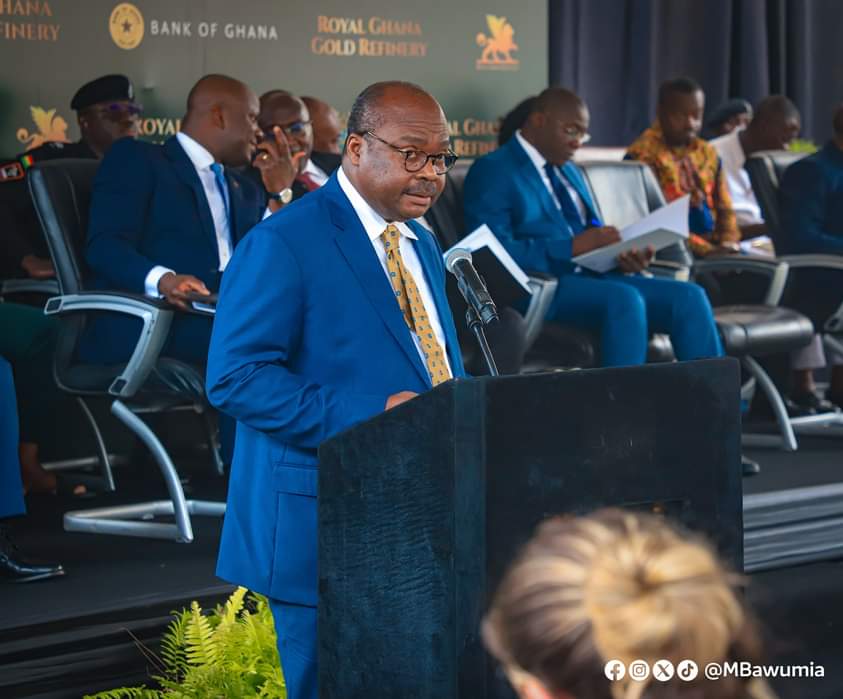adverts
Dr. Ernest Addison, the Governor of the Bank of Ghana, has praised the establishment of Royal Gold Ghana Limited (RGGL), a local gold refinery, as a transformative step for the country’s gold industry and the Bank’s Domestic Gold Purchase Programme (DGPP).
Speaking at the inauguration of RGGL on Thursday, August 8, Dr. Addison underscored the refinery’s potential to significantly enhance the Bank of Ghana’s (BoG) efforts in bolstering the nation’s economy.
He highlighted that the DGPP has successfully acquired 65.4 tons of gold, valued at $5.07 billion, since its inception. This year alone, the Bank has purchased 23 tons of gold worth approximately US$1.8 billion, exceeding expectations under the IMF program.
adverts
Dr. Addison noted that gold is projected to be Ghana’s leading export commodity in 2024, with estimated earnings close to US$10 billion.
He emphasized that this development presents substantial opportunities for job creation, increased foreign exchange earnings, and overall economic growth.
Despite Ghana’s long-standing history of gold exports, Dr. Addison pointed out that the country has yet to fully realize the potential benefits of these exports on the local economy. The exportation of raw gold, without value addition, results in significant revenue and job losses. The establishment of RGGL aims to address this issue by promoting gold beneficiation and value addition, which are expected to contribute to economic growth, poverty reduction, and improved livelihoods for Ghanaians.
The governor also highlighted the refinery’s role in reducing gold smuggling by providing a legitimate market for artisanal and small-scale miners.
This initiative will promote transparency and accountability in gold trading.
Additionally, once RGGL receives London Bullion Market Association (LBMA) Good Delivery List accreditation, Ghana will benefit from reduced dependence on foreign refineries, enhanced foreign exchange reserves, and decreased reliance on external borrowing.
Dr. Addison further mentioned that the refinery will enable the production of gold coins and other artifacts, broadening investment options in the financial markets and contributing to financial stability.
He expressed confidence that the local gold refinery aligns with the Bank of Ghana’s objectives to build adequate foreign reserves, stabilize the economy during adverse shocks, and achieve its core mandate of price stability.
In his concluding remarks, Dr. Addison congratulated the Board, Management, and Staff of RGGL on their achievement and urged key stakeholders, including the government, mining companies, and artisanal miners, to support this initiative. He called for collective efforts to promote the growth of Ghana’s gold industry, add value to the country’s natural resources, and build a prosperous future for the nation.


